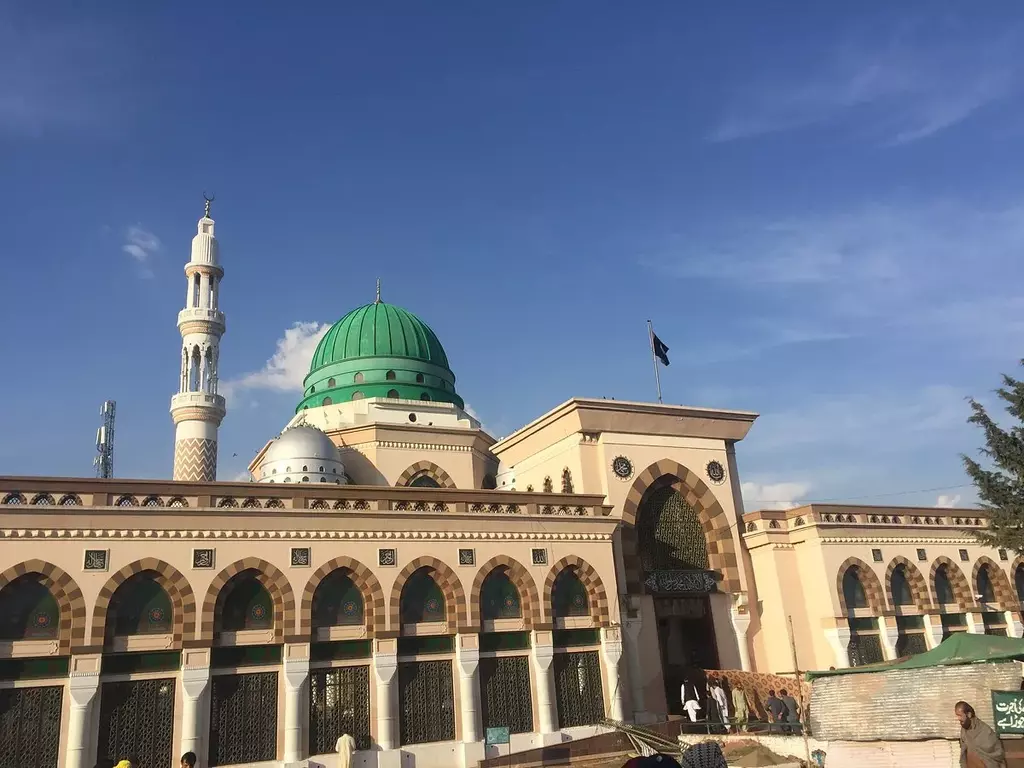Bari Imam Shrine

- The Bari Imam Shrine is one of the most revered Sufi sites in Pakistan, attracting thousands of devotees, spiritual seekers, and tourists every year. Located in Nurpur Shahan, near Islamabad, the shrine is dedicated to Syed Abdul Latif Kazmi, popularly known as Bari Imam, who was a 17th-century Sufi saint and preacher. Bari Imam played a crucial role in spreading Islam in the region, and his teachings emphasized love, tolerance, and devotion to God. The shrine has become a spiritual hub, where people come to seek blessings, offer prayers, and immerse themselves in the Sufi traditions of zikr (remembrance of God) and qawwali (spiritual music).
- The shrine’s architecture reflects a blend of Mughal and Islamic styles, featuring intricate tile work, mirror mosaics, and Quranic inscriptions. The main hall, where Bari Imam is buried, is beautifully decorated with chandeliers, colorful glasswork, and ornate calligraphy, creating a serene and mystical atmosphere. The shrine complex also includes a mosque, a courtyard for gatherings, and a sacred water spring, which is believed to have been blessed by the saint himself. Devotees and visitors often bring flowers, chadars (cloth coverings), and offerings, as a mark of respect and devotion.
- Every year, the shrine hosts the Urs of Bari Imam, a grand festival and spiritual gathering that lasts for several days. During this event, thousands of followers from across Pakistan and beyond participate in recitations, Sufi poetry, qawwali performances, and special prayers. The Urs serves as a reminder of the saint’s message of peace and unity, drawing people from all walks of life. The festival also includes charity food distribution (langar), a long-standing tradition of Sufi shrines, where free meals are served to all visitors regardless of background.
- The Bari Imam Shrine remains a symbol of Islamic spirituality and Sufi culture, offering a place of solace and reflection in the heart of the capital. Its peaceful surroundings, spiritual energy, and historical significance make it a must-visit site for those interested in the rich Sufi heritage of Pakistan. Whether visiting for religious devotion or cultural exploration, the shrine provides a profound experience of faith, history, and tradition in Islamabad.
